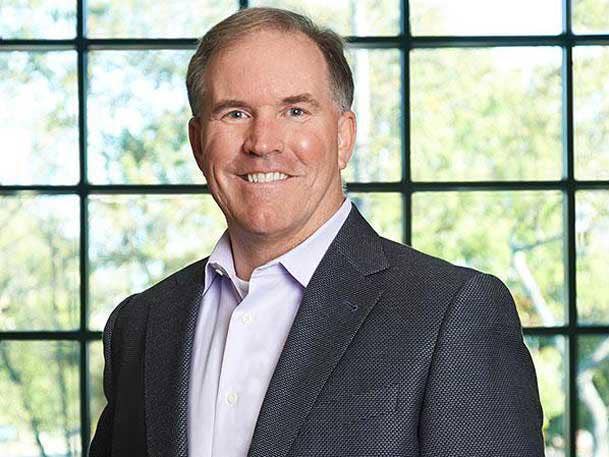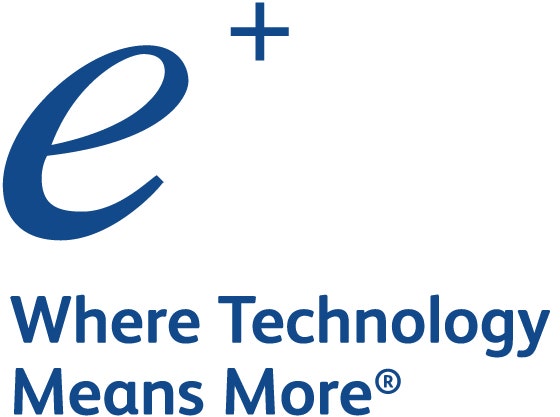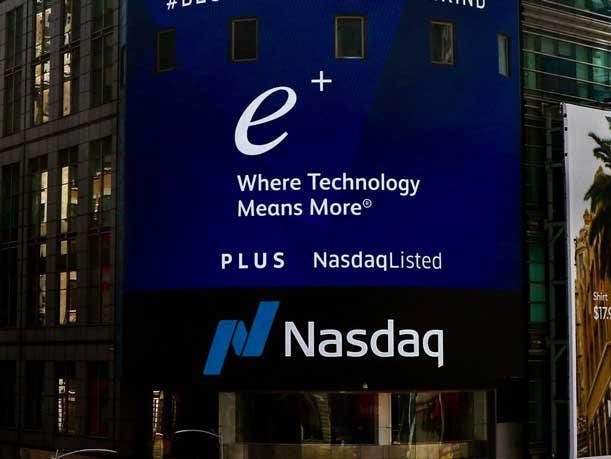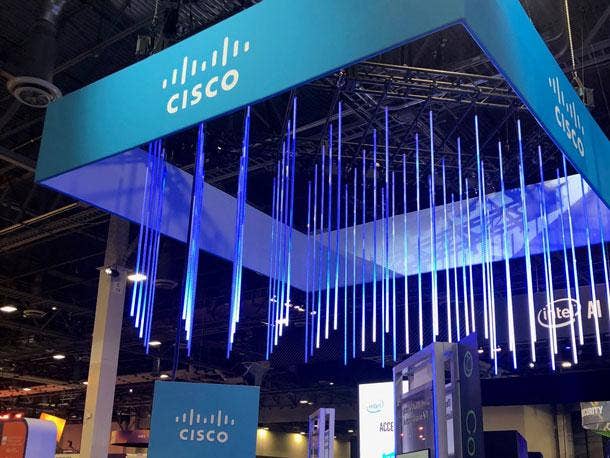ePlus CEO Mark Marron: ‘We Don’t Think We’re Recession-Proof. But We Think We’re Recession-Resilient’
‘But when you get into macro headwinds, it’s actually a positive for us because we’ve got the two segments. We not only provide the solutions and the services, but we also have the financing capabilities. So if somebody doesn’t have the budget, we could provide financing to procure those technologies or solution,’ says ePlus CEO Mark Marron.

ePlus On A Roll
Things are looking good for IT solution provider ePlus. The Herndon, Va.-based provider of technology and financing solutions in late May reported fiscal 2023 revenue of $2.07 billion, up 13.5 percent over fiscal 2022, thanks to a 16.3 percent bump in technology sales and a 9.9 percent bump in services revenue. Net earnings rose 13.0 percent.
ePlus CEO Mark Marron, in an exclusive wide-ranging discussion with CRN, said his company has a couple of unique advantages that are helping it grow despite macroeconomic headwinds.
One of those is its experience with acquisitions. ePlus has made 30 acquisitions that bring either new technology expertise or expanded geographic footprints, including its most recent, that of the Network Solutions Group business unit of CCI Systems, which brought the company the valuable Cisco Master Service Provider Technology Architect specialization.
Related: [MSPs And Private Equity: What Makes An MSP Stand Out From The Pack?]
Another unique advantage is its financing business. Marron said most people don’t realize it, but ePlus started as a financing business and then acquired solution providers to the point where nearly all revenue comes from IT, but financing provides strong margins.
As a result, macroeconomic headwinds actually become positive for ePlus. “We not only provide the solutions and the services, but we also have the financing capabilities,” he said. “So if somebody doesn’t have the budget, we could provide financing to procure those technologies or solutions. … We don’t think we’re recession-proof. But we think we’re recession-resilient.”
Here is more of what Marron had to say to CRN.

How do you describe ePlus to customers?
We’re a leading provider of cloud security, AI and all related services. We have two segments to our business: a technology segment and a finance segment. On the technology segment, we provide all the solutions and services our customers need in cloud, data center, security, networking, collaboration, and all the advisory and annuity services to help customers install, implement training on those technologies, and proactively monitor and manage those customers. On the other side is our finance segment where we’ll actually provide financing options to our customers to make it easy for them to procure and purchase our products.
Our top five verticals are the same five every quarter, every year. It’s technology, telecom, finance, SLED and health care. Percentagewise, it’ll change, but they make up about 80 percent of our revenue pretty much every quarter every year. The other thing that’s interesting is as we’ve gotten bigger, we don’t sell into the ‘S’ of SMB. We’re focused on the midmarket, 500 users and above, and over this past year, we’ve seen every size segment from 500 users all the way up to enterprises increase.

Why the need for a unit specifically for financing?
We started off as a finance company. We saw a lot of what we were financing was IT assets. So over the past 30-plus years, we’ve been acquiring resellers. My job when I first came on board was to integrate all these different resellers into our national sales and services team. So ePlus started as a financing company, financing IT assets. And now the technology side of our business is probably 97 [percent] to 98 percent of our revenue. Finance is only about 2 [percent] to 3 percent but makes up about 20 percent of our operating income now. So it’s a profitable business for us.
ePlus just this month made another acquisition. Tell us about it.
It was the Network Solutions Group business unit of CCI Systems. They’re in the service provider space. They deal with carrier infrastructure and networking services. And they’re one of only six companies in the U.S. that are national and have the Cisco Master Service Provider Technology Architect specialization. This is pretty cool. We think we can leverage it across the rest of ePlus.
Nearly 90 people came with the acquisition. Our head count is now about 1,800.

Does the Cisco Master Service Provider Technology Architect specialization automatically transfer to ePlus?
When we acquired the organization, we didn’t realize it had that specialization. As we were doing our due diligence, we’re like, ‘All right, this could be something that’s really good especially in the infrastructure space around the service provider carriers.’ It’s an interesting space. And there’s opportunities to sell other technologies that they didn’t have the ability to do before.
But it was after the due diligence that you found out?
By the way, that’s normally how it goes. When you normally go through an acquisition process, before you give some type of offer, the company being acquired is only going to share so much information. They’re not going to open up the kimono. So once you do an LOI [letter of intent], and you put the offer out there, then you get access to the entire data suite, if you will. And as we started going through it, our team started getting more and more excited about what they were doing with their specializations and their customer base. ...
We’ve been doing this for 30 years. We’ve done a bunch of integrations, and we normally have teams that are on-site weeks before the acquisition closes and weeks after. It’s important to understanding the different players, the applications, what we need to port over from a data perspective or customer perspective. And then afterwards, we have people on-site because on day one we put them on ePlus systems and applications. People on-site can walk them through all the different things they have to be aware of.

So how many acquisitions has ePlus made over the years?
Approximately 30. Most of them were smaller. And what we’ve seen is normally they sell in a silo space, like the service provider space with the Network Solutions Group, but others have been security-specific resellers. …
The intent in every acquisition is they’re melded into ePlus. They get the benefits and the power of all the people and the tools and the processes and everything that we have. There have been instances where we’ve kept some groups to the side for a period of time until they get acclimated. And a lot of that has to do with their doing business a certain way. We don’t want to overwhelm them with everything we bring to the table. We want to make sure we don’t break what they’re doing, and then try to add to it later.
Going forward, will acquisitions remain part of ePlus’ growth strategy?
Very much so. We’re lucky enough that we have a strong balance sheet. Acquisition is one of our strategic initiatives. It’s not just expanding our footprint. It’s picking up technical expertise or services we don’t have , expanding our customer base. And we picked up a lot of good people over the years that are in significant roles at ePlus.
Every acquisition we do, we look at a few things. Does this give us some type of territory coverage or reach that we don’t have? Do they have some type of technical expertise or services that we could leverage across the rest of ePlus? We look at their customer base, and we look if we’ve picked up some really good people. And then what happens is, with the power of ePlus, we’re able to go back in and help them sell security, leverage our finance team, sell our services, and things along those lines.

So for 2023, what are you seeing in terms of where the economy is and how it’s impacting your customers?
There are a few things going on from a macroeconomic standpoint. There was the supply chain issue, which is starting to ease a little bit, so the lead times are getting a little bit better, especially in networking and a couple other spaces. Rising interest rates are affecting some customers where potentially their buying power has been reduced. And there’s the threat of a recession. But when you get into macro headwinds, it’s actually a positive for us because we’ve got the two segments. We not only provide the solutions and the services, but we also have the financing capabilities. So if somebody doesn’t have the budget, we could provide financing to procure those technologies or solutions. …
We don’t think we’re recession-proof. But we think we’re recession-resilient.
Do you see customers pulling back on budgets?
I have not seen that yet. Customers are maybe taking a little bit longer to analyze deals and opportunities, but we don’t see people pulling back. In uncertain times, people are going to need to continue to invest in security. They’re going to invest in AI. I think a lot of folks have already taken advantage of the cloud, so I don’t think the cloud is slowing down per se. But I think there are cost optimization opportunities. Working with customers, we provide advisory services that help them make decisions on what they’re doing with their workloads, are they [being] the most efficient or the most cost-effective. And the same thing on the security side. We’ll actually sit with our customers and walk them through their entire environment, all the tools and processes they have in place, and what they should be considering as they go forward.

What are some technologies customers are adopting now that they haven’t really done much with in the past?
I think AI is the biggest by far. Think about ChatGPT, and that kind of stuff. I think everybody’s trying to figure out how to leverage AI as they go forward. And it’s twofold. One, from a data strategy standpoint, is how customers will leverage their data internally. And then the second piece is externally. A lot of customers are trying to figure out how to leverage all of the data they have in their systems to communicate internally what the message is, but just as importantly, how do they touch all their customers to drive more revenue? The second part of that is really kind of the risk and the efficiency part of it. So when you have that much data, and it’s going across all different platforms and across all different users and all different sites, there’s a risk there. So there’s a security opportunity. And there’s an efficiency opportunity.
Has ePlus invested at in developing or using AI?
Yes, but very lightly right now. But we have strategy teams that are actively looking at that, trying to figure out solutions that we can take to market that make sense for our customers.
Is ePlus doing its own software development, developing your own applications?
Yes, but not much. We have our own proprietary procurement software. And that’s really just to help customers procure technology from us, track orders, things along those lines. The other piece is Ava, which is basically a video assistant that’s there to ping systems to make sure that they’re up and running, to let you know if there’s any issues in terms of response times and things along those lines.
But to be clear, we’re not a software company per se. We’re a true solutions provider that’s providing solutions and services to our customers. We’ve done some software development, but that’s not our strength.

What are some of the key initiatives ePlus is looking at for the rest of 2023?
I’ve asked the team to have a customer-first, services-led, results-driven mentality. And what I mean is really everything revolves around the customer, understanding what they’re looking for, understanding their key initiatives, understanding what outcomes they need to be successful.
The second piece is the services side. I said that we moved away from the commodity products side of the business to really set us apart. And if you look at it versus our public peers, our gross margins are pretty good. And it’s because we’ve moved into the services space where we provide the advisory services, helping our customers understand where they’re at and where they want to go. We provide professional services, we provide staffing, and we provide managed services including proactive monitoring and management of services. So the things that we’re pushing the team towards is really having that customer-first, services-led, results-driven mentality, and then making sure that we’re selling the solutions and all the areas that our customers need including—and I’m stating the obvious—cloud, security and so forth.